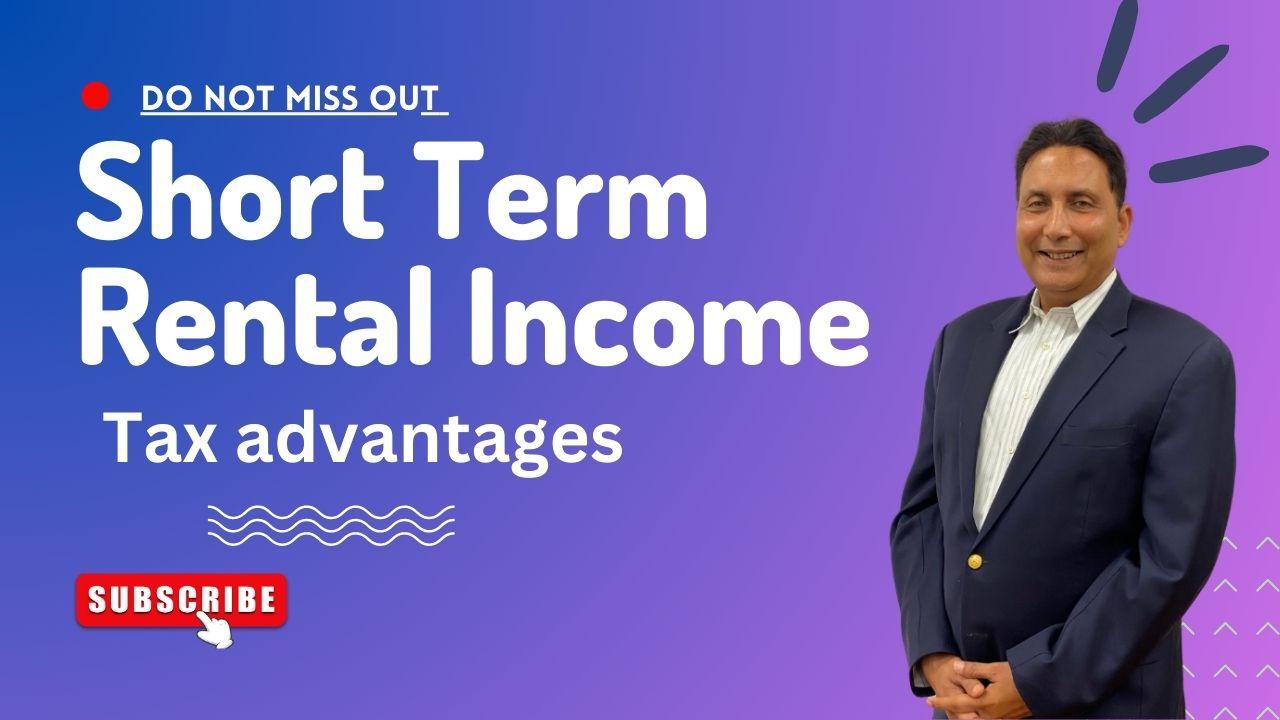
Short-term rental refers to the practice of renting out a property or a portion of it for a brief period, typically for a period of fewer than 30 days. This type of rental has become increasingly popular with the advent of online platforms like Airbnb, VRBO, and HomeAway.
The income generated from short-term rentals is generally taxable, and the tax treatment may vary depending on a number of factors, including the duration of the rental, the location of the property, and the owner's tax status. In general, short-term rental income is treated as ordinary income and is subject to federal and state income tax.
Owners of short-term rental properties may be able to deduct certain expenses related to the rental activity, such as property taxes, mortgage interest, insurance, and maintenance costs.
Two major tax exemptions -
One potential exception is the "Masters exemption," which allows homeowners to rent out their homes for a short period of time without paying taxes on the rental income. This exception typically applies only to homeowners who rent out their homes during major sporting events or other significant events, such as the Master's Golf Tournament in Augusta, Georgia.
Another potential loophole is the "14-day rule," which allows homeowners to rent out their properties for up to 14 days per year without paying taxes on the rental income. This exception typically applies to homeowners who rent out their primary residence or second home that they use for personal purposes.
Another potential loophole is the "14-day rule," which allows homeowners to rent out their properties for up to 14 days per year without paying taxes on the rental income. This exception typically applies to homeowners who rent out their primary residence or second home that they use for personal purposes.
Tax Implications: Owners of short-term rentals must report all rental income received on their tax return and may be subject to federal, state, and local taxes on that income. They may also be able to deduct certain expenses related to the rental activity, such as cleaning fees, repairs, and maintenance.
Requirements: Short-term rental owners must comply with all applicable tax laws and regulations, which may include obtaining any necessary licenses or permits, collecting and remitting taxes, and maintaining accurate records of rental income and expenses.
Tax Benefits: Short-term rental owners may be able to take advantage of certain tax benefits, such as the ability to deduct expenses related to the rental activity and the ability to use depreciation to reduce taxable income. Additionally, some owners may be eligible for special tax rules, such as the rental property exception or the Masters exemption.
Compliance: It's important for short-term rental owners to stay in compliance with all applicable tax laws and regulations to avoid penalties and fines. They should consider consulting with a tax professional who can provide tailored advice based on their specific situation and help ensure that they are meeting all requirements.
Record Keeping: Short-term rental owners should maintain accurate records of rental income and expenses, including receipts, invoices, and other documentation. This will help ensure that they are able to properly report their rental income and take advantage of all available tax deductions.
Tax Planning: Short-term rental owners should engage in tax planning to help minimize their tax liability and take advantage of all available tax benefits. This may include strategies such as timing rental income and expenses, structuring the rental activity in a tax-efficient manner, and making use of any available deductions or credits.
The Short Term Rental (STR) loophole is a tax-saving strategy that allows property owners to classify their rental activity as "non-passive" instead of "passive." This classification can lead to significant tax benefits for property owners who meet the criteria for the STR loophole. Here are some bullet points to help explain the STR loophole and what qualifies:
Qualifications for the STR loophole:
What does not qualify for the STR loophole:
While the short-term rental loophole can be a valuable tax-saving strategy, there are some nuances and potential pitfalls to be aware of:
Personal use of the property: If you use the property for personal use for more than 14 days per year, then it's considered a residence, and the losses are limited to the income it produces.
Substantial services: If you provide substantial services to your guests, such as linen changes, cleaning, vehicles, or vouchers for local attractions, your activity may not qualify for the short-term rental loophole.
Record-keeping: It's essential to keep detailed records of your rental activity, including rental income, expenses, and hours worked on the rental property, to ensure that you meet the requirements for the short-term rental loophole.
Material participation: To qualify for the short-term rental loophole, you must materially participate in your rental activity. This means that you must be involved in the day-to-day management of the property and make significant decisions about the property's operations.
Passive activity rules: The IRS has strict rules around passive activity, which can limit your ability to deduct losses from rental properties. It's essential to understand these rules and ensure that your rental activity meets the criteria for non-passive activity.
While the short-term rental loophole can be an effective tax strategy, it's important to be aware of the potential pitfalls and nuances. Working with a professional tax advisor and keeping detailed records can help ensure that you maximize your tax savings while staying compliant with IRS rules and regulations.